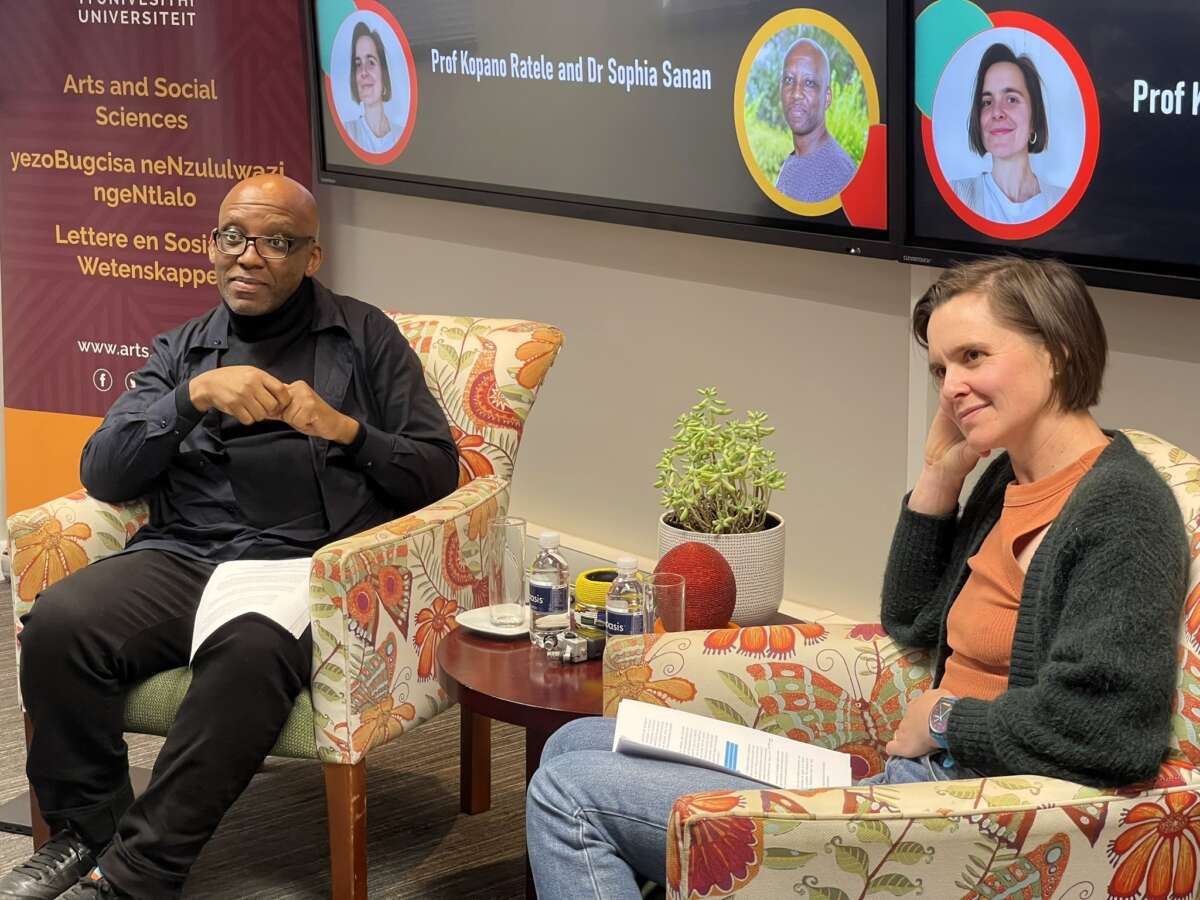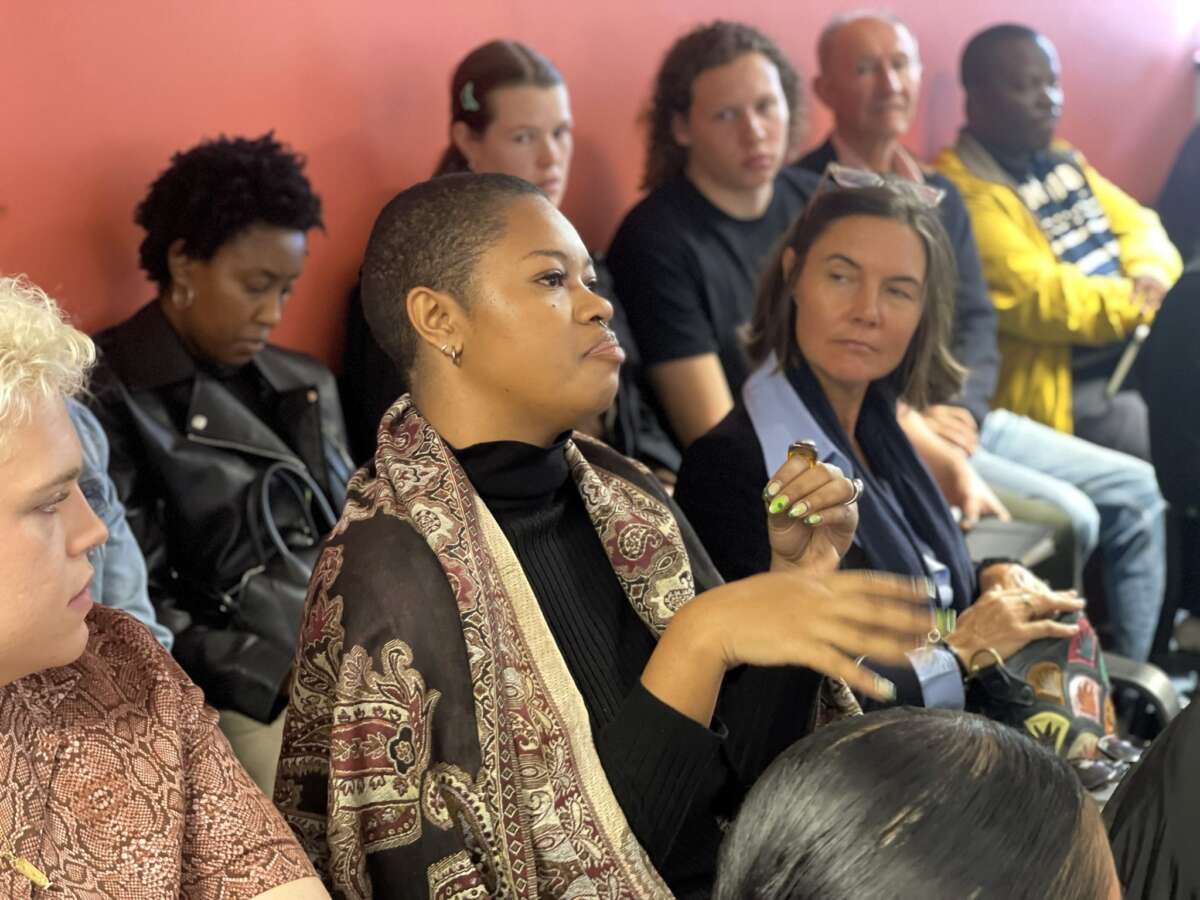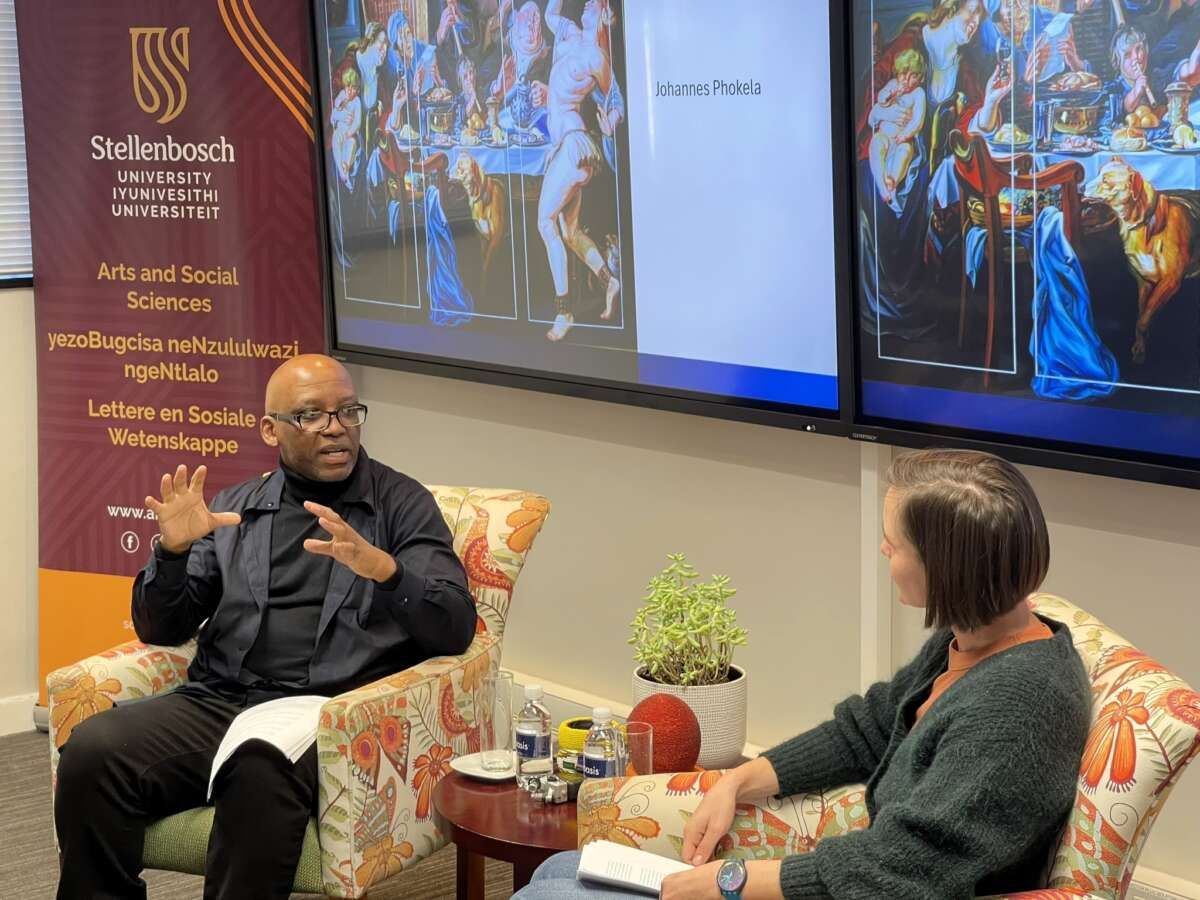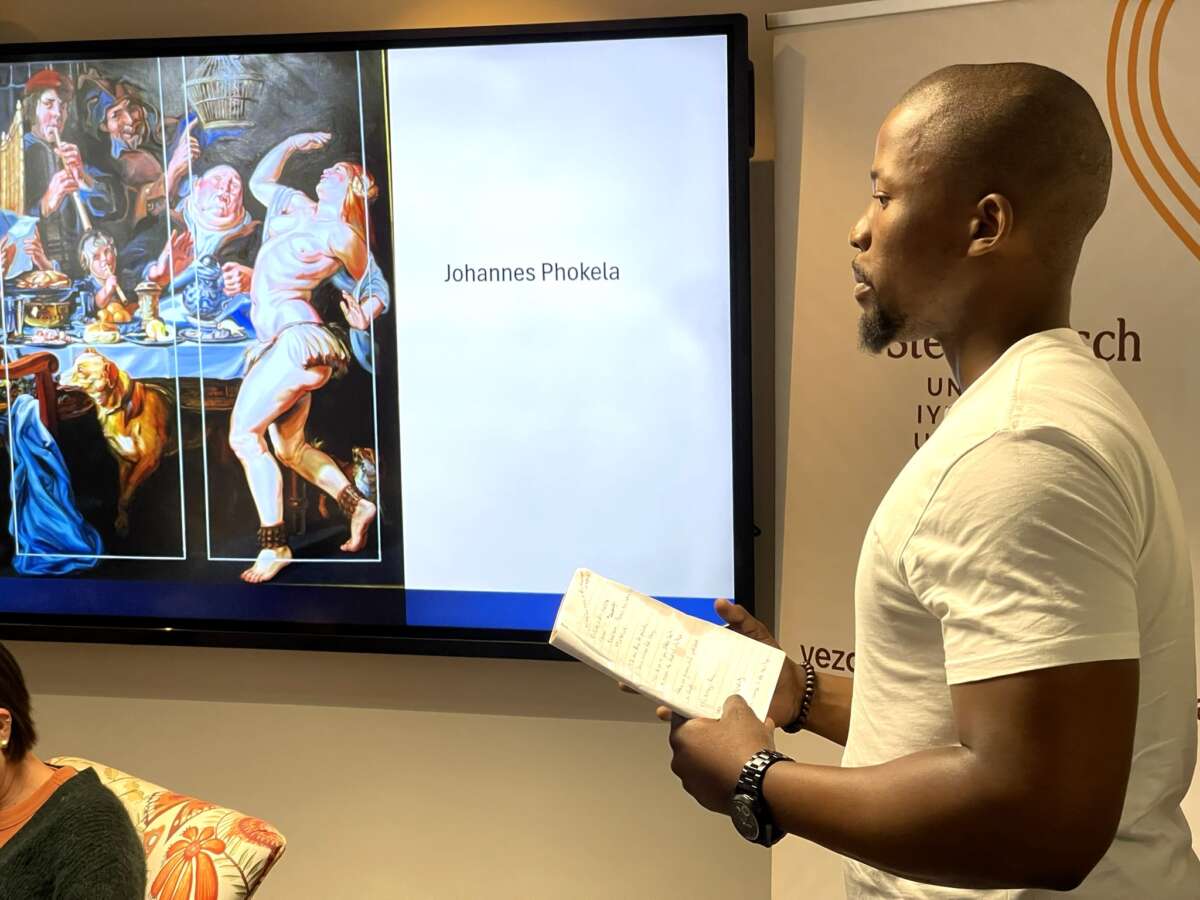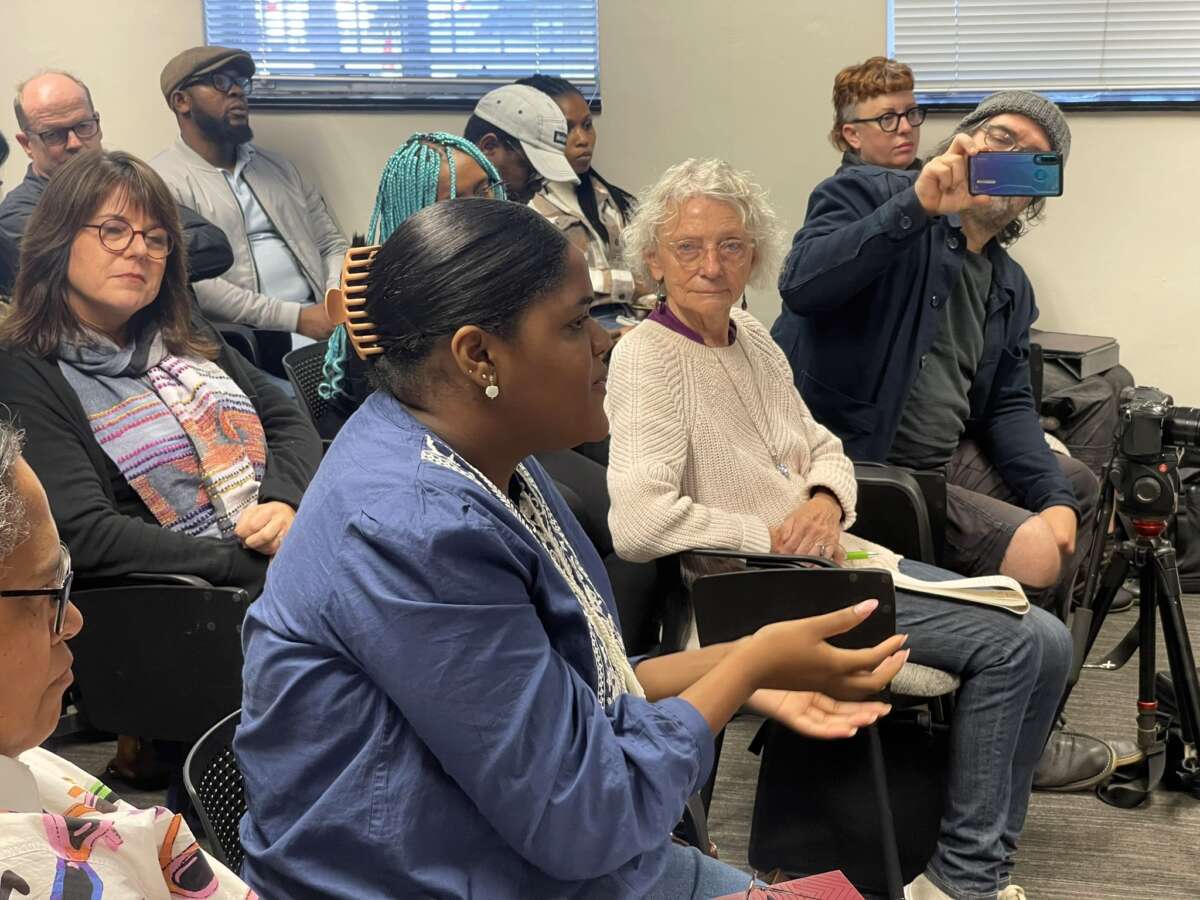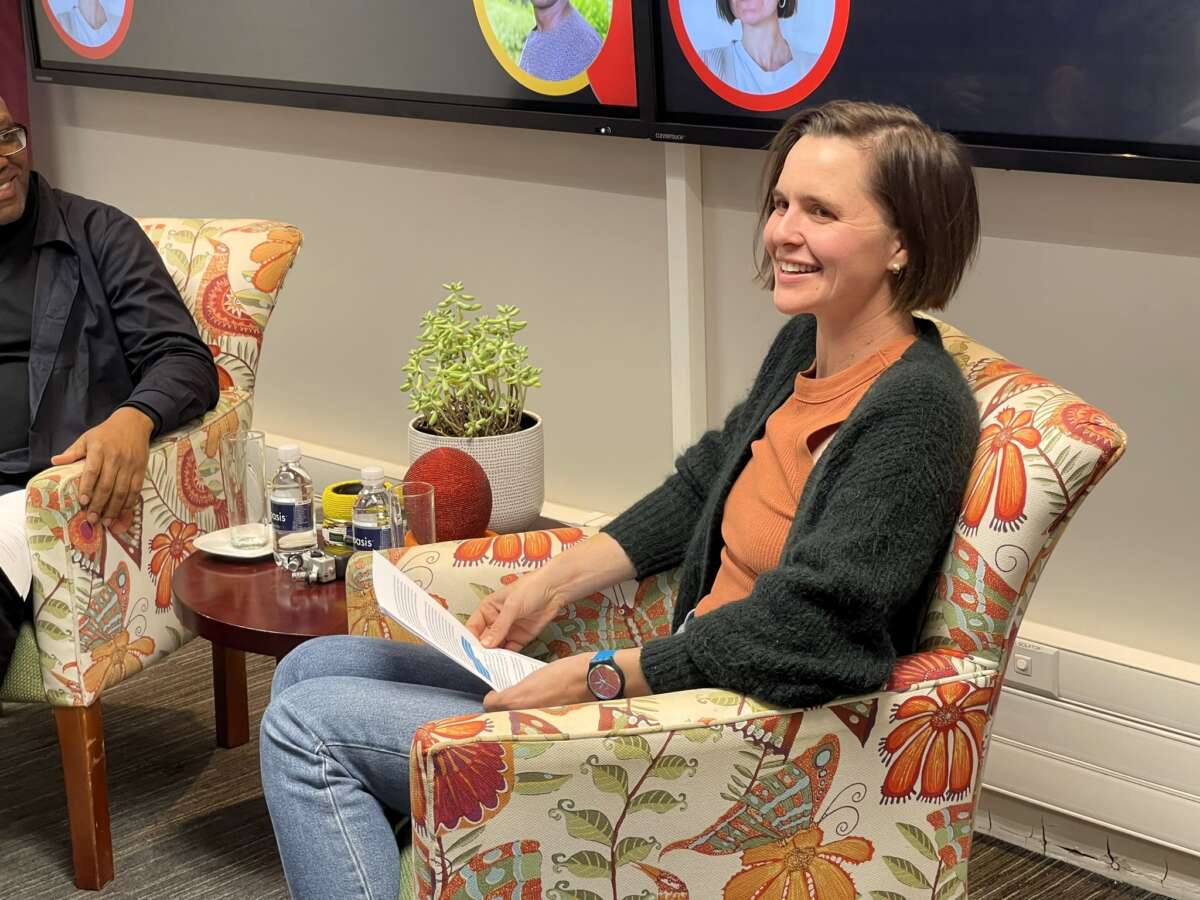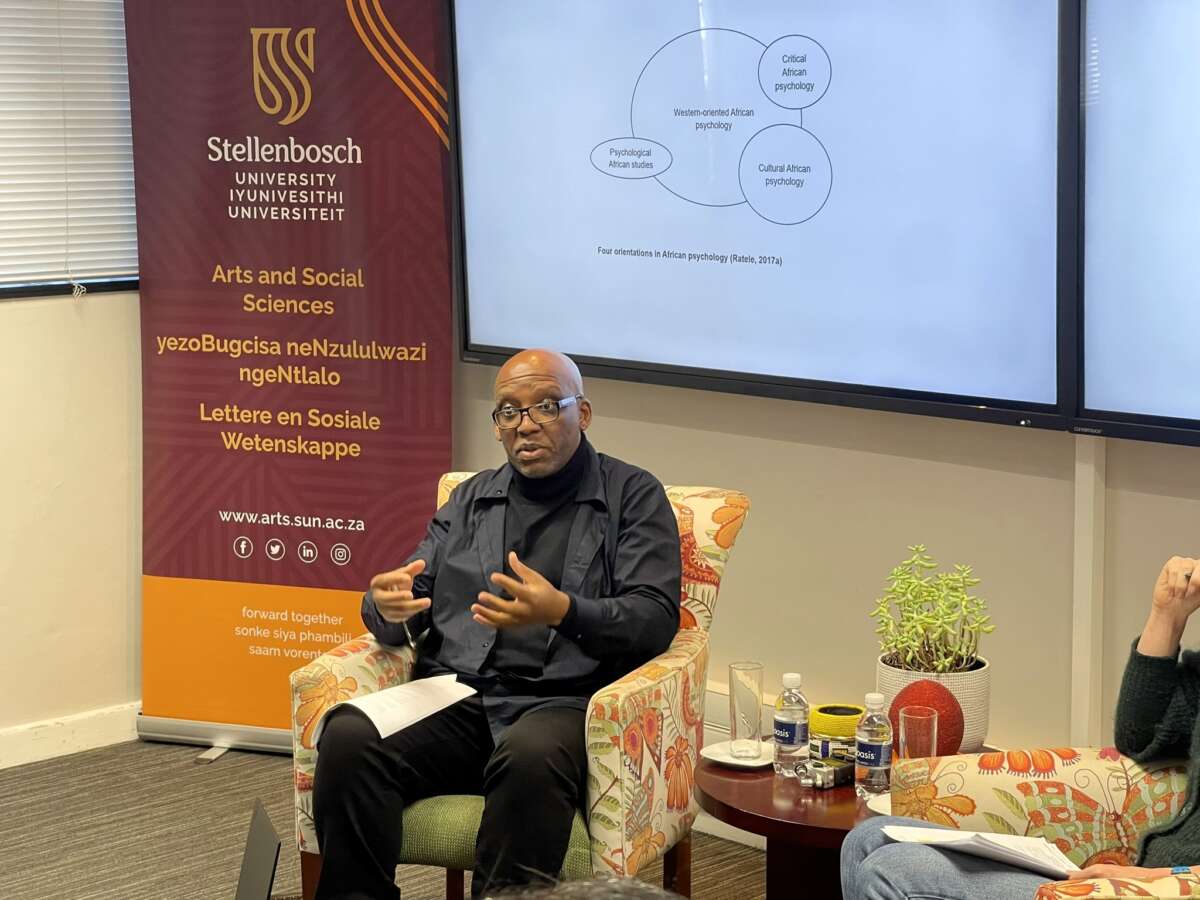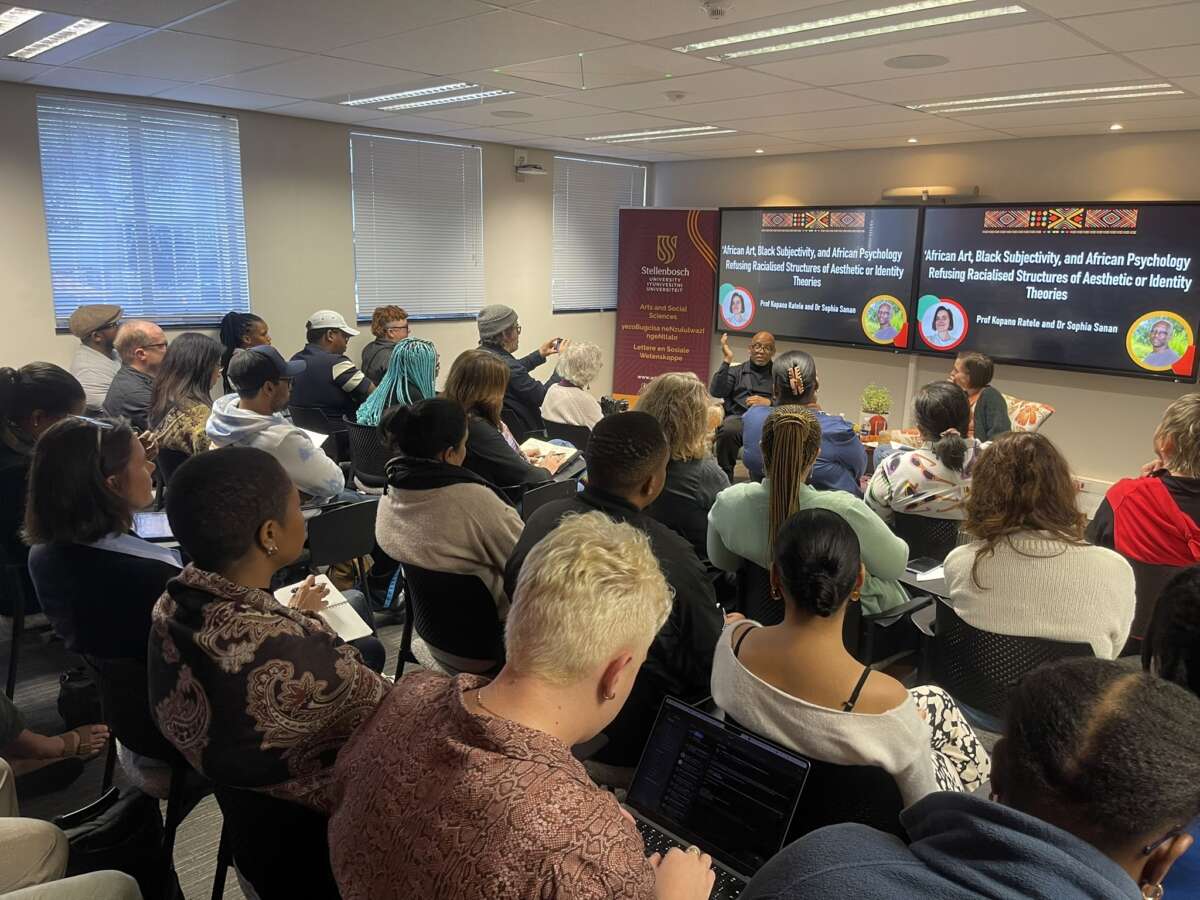Refusing Racialised Structures of Aesthetic or Identity Theories
In a recent Brown Paper Bag discussion titled “African Art, Black Subjectivity, and African Psychology,” held at AVReQ, Professor Kopano Ratele and Dr. Sophia O. Sanan engaged in an insightful exploration of the challenges and opportunities surrounding racialized structures of aesthetic and identity theories within South Africa’s settler colonial legacy. This conversation explored the intricate relationships between African art, black subjectivity, and African psychology, reflecting on both historical contexts and contemporary challenges.
Unpacking African Psychology
Professor Ratele emphasized the “radical potential” of African psychology, particularly for black students, by framing his teaching philosophy around making students uncomfortable enough to question the colonial and racist histories that shape their identities and subjectivities. Ratele stated, “I want them to fully digest and work through the colonial and racist history.” This discomfort is essential for fostering a deeper understanding of African identity, as well as recognizing and challenging the remnants of colonial superiority complexes that persist in educational institutions.
Ratele further explained that African psychology is often misunderstood, frequently conflated with traditional healing practices, or seen as merely a reactionary field. Ratele clarified that African psychology should be seen as “the systematic and informed study of the complexities of human mental life, culture, and experience in the pre- and post-colonial African world.” This broader definition encapsulates a comprehensive view that includes but is not limited to traditional healing, addressing the diverse psychological experiences of black Africans.
The Role of African Art
Dr. Sanan brought a nuanced perspective to the conversation, particularly regarding African art and its role in expressing and shaping black subjectivity. She questioned the necessity of categorizing art as “African” in the context of South Africa, suggesting that such labels might perpetuate a form of othering. Sanan argued for the recognition of African art as a fundamental part of the broader art world, asserting that in places like South Africa, it should simply be referred to as art: “Why must we say African art in South Africa? We should just be talking about art.”
Sanan highlighted the creative and disruptive potential of art as a means of resisting and redefining oppressive structures. She proposed that embracing creativity and breaking institutional rules could serve as a powerful language against silencing policies: “Leaning into the making and being creative as a form of language against this very silencing…maybe that is where you’re not theorizing anymore but you’re speaking a visual language.” This perspective underscores the idea that art can transcend verbal language, offering alternative ways to communicate complex identities and experiences.
Addressing Racialized Structures
A significant aspect of the conversation revolved around the burden and baggage associated with the concept of African art and the superficial africanization of visual cultures. The speakers emphasized the need to counter the ethics or moral bankruptcy often represented by Western universal thinking orders, advocating for a more nuanced and decolonized approach to understanding African aesthetics and identity theories. They explored the stakes and politics implicated in categories like African art and African psychology, especially as they intersect within the academic and cultural milieu of Stellenbosch University and the town of Stellenbosch.
Intersections and Implications
Prof Ratele and Dr. Sanan discussed the importance of recentralizing African aesthetics and histories without falling into superficial africanization. They challenged the notion of what African art and psychology truly mean, shedding light on how these categories are entangled with systemic and ontological issues, particularly in the shadow of South Africa’s colonial past. The dialogue revealed significant intersections between African art and psychology, particularly in how both fields engage with notions of identity, history, and epistemology.
Ratele pointed out that “the changing of awareness is where I suppose I am located,” indicating that shifts in perception are crucial for both psychological and artistic practices. Sanan’s work on the politics of identity and heritage through African art provided a rich backdrop for analyzing the complexities of representation and cultural narratives within African art, highlighting the need to move beyond categorizations and embrace a more holistic approach to discussing art in Africa.
The dialogue between Professor Kopano Ratele and Dr. Sophia Sanan offered profound insights into the interconnectedness of African art, black subjectivity, and African psychology. By challenging traditional narratives and advocating for a more nuanced and inclusive understanding of these fields, they highlighted the transformative potential of education and creativity. The event served as a poignant reminder of the ongoing conversations and critical engagements needed to navigate the intricate tapestry of African aesthetics, identity, and psychology in a world marked by historical legacies and evolving paradigms. Their dialogue emphasized the necessity of refusing racialized structures and embracing decolonial lenses to reimagine African art, psychology, and cultural productions.
